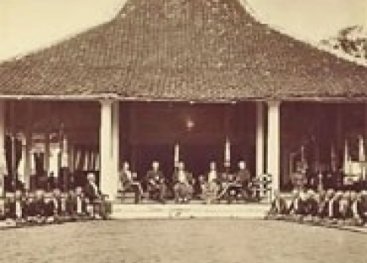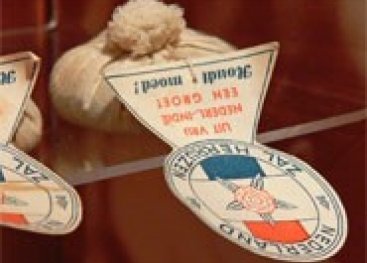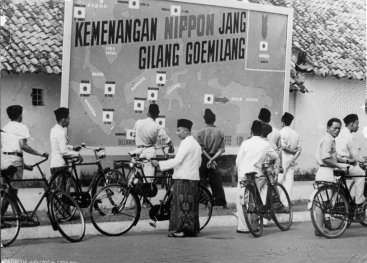
'Police actions' and the transfer of sovereignty
Diametrically opposed
After the Japanese surrender, the Dutch hoped for a return to the pre-war situation. The nationalists were seeking recognition of the Indonesian Republic. Both parties were diametrically opposed to each other. The British liberators demanded that the Dutch negotiate with the nationalists. But the negotiations were difficult. The Netherlands refused to recognise a fully independent Indonesia.
'Restore calm and order'
The Netherlands expanded its armed forces in Indonesia with volunteers and conscripts from the Netherlands. On 20 July 1947, Dutch troops entered Republican territory to ‘restore calm and order’. A second so called ‘police action’ followed in 1948. There was heavy fighting, in which thousands of Dutch people and tens of thousands of Indonesians were killed, many of them being innocent civilians. Nowadays the 'police actions' are called the colonial war and from Indonesian perspective war for independence.

27 December 1949
The Dutch actions came under increasing criticism, both in the Netherlands and internationally. Under great pressure from the United States, the Netherlands resumed negotiations and eventually recognised Indonesian independence. On 27 December 1949, the Netherlands officially transferred sovereignty to the Republic of Indonesia.

Stories - Complete conviction

Dutch East Indian Robert de Rouveroy was called up for service with the KNIL shortly after his release from a camp. His family had lived in the Dutch East Indies for generations.
“I considered the East Indies to be my country. I took part in the 'police actions' on Sumatra out of complete conviction. As a war photographer, I recorded the most horrific scenes. One time I took photographs of a kampong where all the inhabitants had been murdered during an action. (...) It took until the 1960s for me to understand that the Indonesians also wanted their freedom, just like we had.”

War volunteer
After the liberation of the Netherlands, Dutchman Jan Kuiper reported as a volunteer for the liberation of the East Indies.
“Many young lads from the HBS senior school signed up as volunteers to serve in the East Indies. We’d kick the Japanese out! Japan surrendered while I was still doing my military training. I went to the East Indies anyway, fully convinced that we were needed to restore order and peace. But after a while I began to have my doubts about our military presence there. I thought: darn, perhaps I’m fighting on the wrong side. When I returned to the Netherlands, our street had been decorated. I always say: ‘We went as idealists, were received back home as heroes, but later went down in history as war criminals.’”
Shoot to kill

During the Dutch 'police actions', Suhendro Sosrusowarno fought in the Indonesian liberation army, Tentara Nasional Indonesia (TNI).
“I fought to liberate my country and my people from an oppressor. We were armed with Japanese guns, and weapons that we had taken from the KNIL. We had little ammunition, so our rule was: ‘If you have to shoot, shoot to kill!’. You had to get as close to the enemy as possible, and then fire. The moment you are face to face with your opponent, there are two possibilities: you kill or you are killed. The question is who is faster. At that moment, there are no longer any moral considerations.”
Armed with a bamboo roentjing
When Indonesian Harry Joesoef’s father was arrested by Dutch troops, Harry joined the pemuda to fight for Indonesian independence.
“I was armed only with a bamboo roentjing (spear). I helped place grenades or put lianas across roads to snare soldiers. I saw two Dutchmen being caught that way. We exchanged them for a few dozen Indonesians.”

